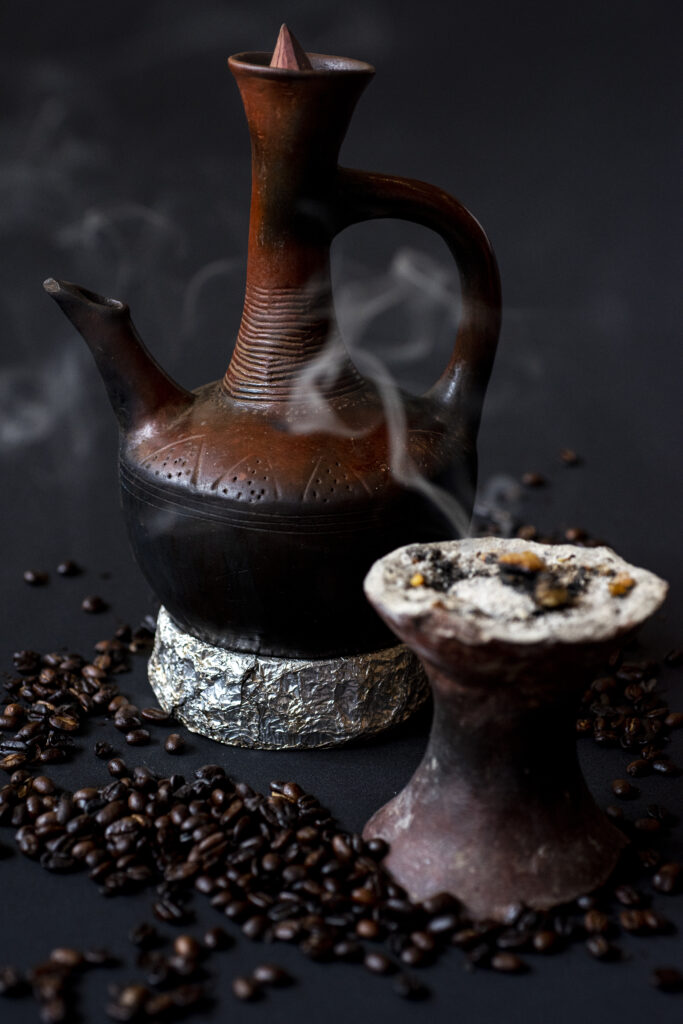Ethiopian Coffee ceremony honors family and health

Coffee is an essential drink in Ethiopian culture. It’s a community experience and a ritual that goes beyond the roasted grains.
“The coffee ceremony is considered to be the most important social occasion in many villages, and it is a sign of respect and friendship to be invited to a coffee ceremony,” according to Lindsey Goodwin in her story on the website The Spruce Eats.
The traditional Ethiopian coffee ceremony traces back to women gathering in the villages inviting one another to unite and socialize after the men leave to work for the day.
“One woman initiates the coffee ceremony in the morning and sends her little boy or girl to invite close neighbors and all women to join in the ceremony,” said Rahel Woldmedhin, the owner of Rahel Vegan Ethiopian Cuisine. “It’s a time for the women to talk about their daily lives, and family.”
A coffee ceremony usually involves a ceramic Jebena—similar to an aluminum coffee pot—a deep dish pan to wash the coffee beans, a burner to roast the beans after being washed, a stone bowl and a wooden hand coffee grinder and small espresso cups.
During the process of the roasting of the coffee beans it’s customary for the maker to do a ritual and walk around with smoked incense, which blends with the aroma of burnt coffee beans.
With each cup served it’s a tradition to have a small container of popcorn or boiled chickpeas as a complementary side. The coffee is to be served black with no added milk or sugar.
The ceremony is more about the ritual rather than the consumption, which creates a sense of unity and belonging that has more value than just the taste of a good cup of coffee.



